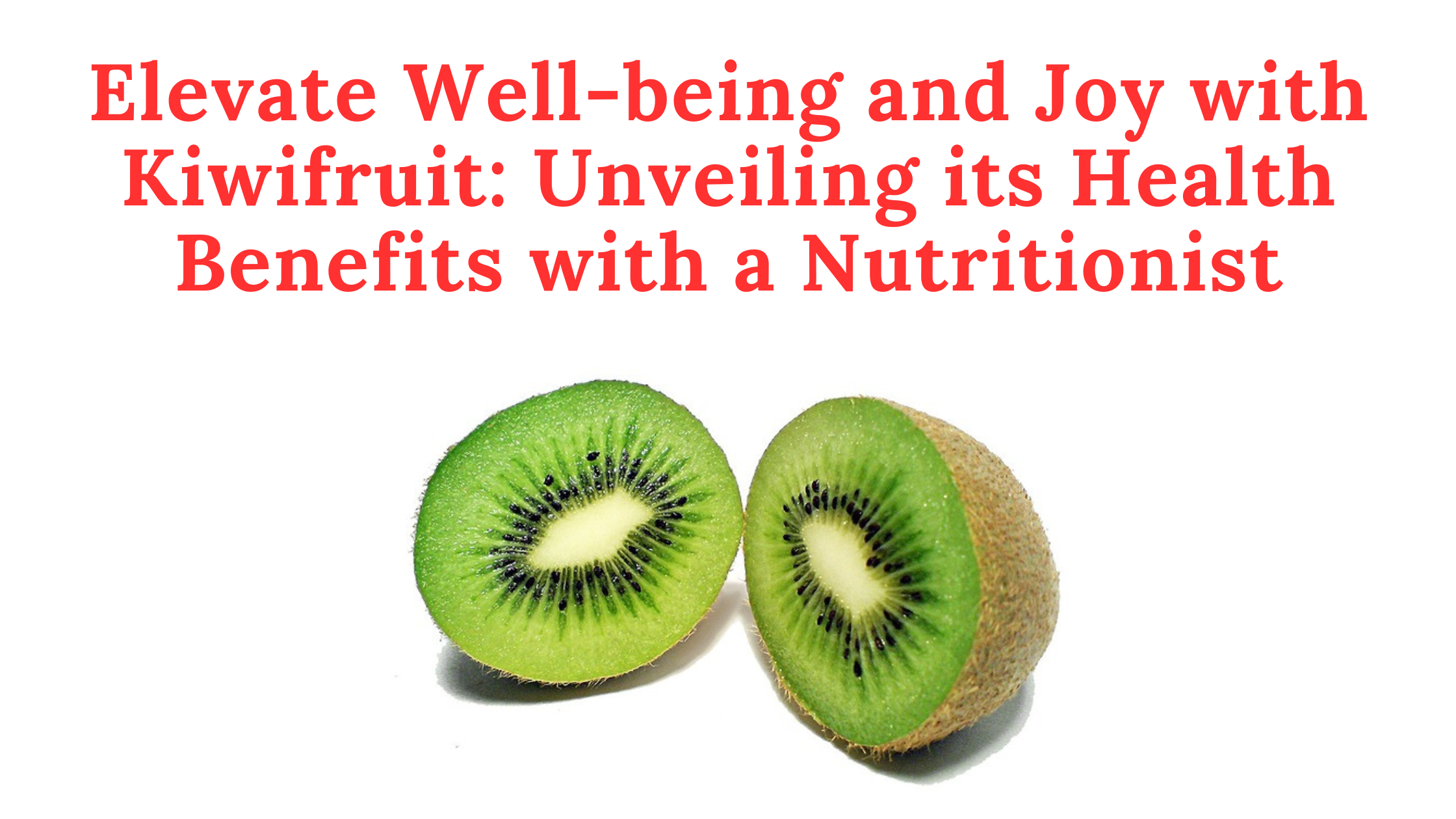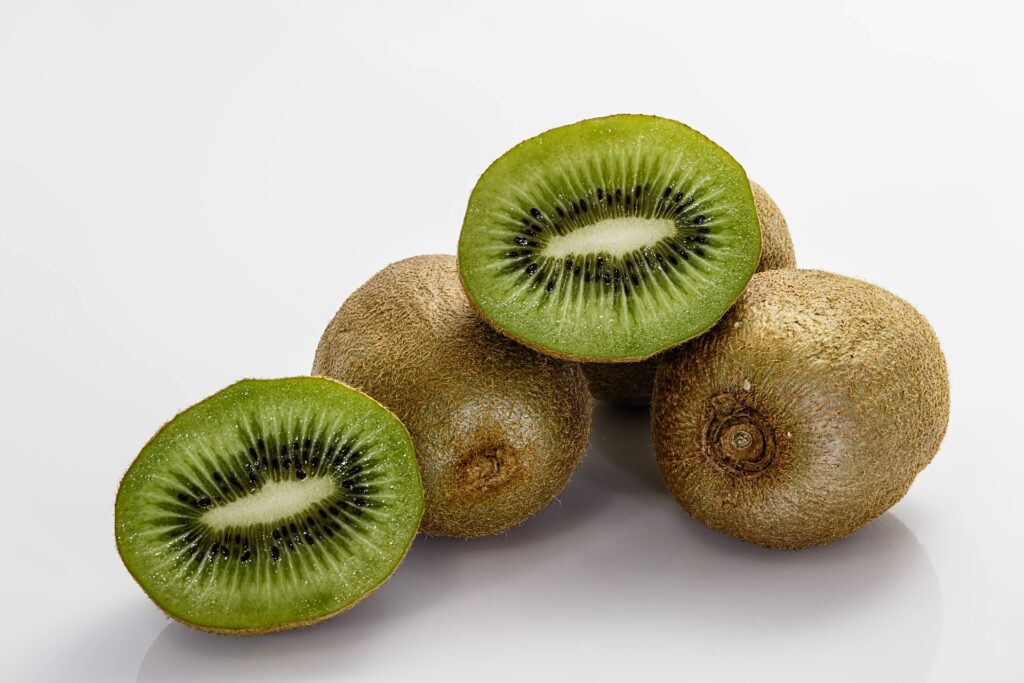
A recent study shows that eating kiwifruit can help improve mood and mental well-being.
Want to feel better in just two weeks? Try eating kiwifruit! It can help reduce mood swings and make you feel happier.
Kiwifruit is packed with Vitamin K and D, which help regulate mood, manage depression, and improve mental health. A study from the University of Otago, published in The British Journal of Nutrition, found that taking kiwifruit supplements improved energy and mood in just four days, with the best results seen around days 14-16.
Kiwifruit is full of nutrients like phytonutrients, minerals, and vitamins. Vitamin K helps with blood clotting and helps the body absorb vitamin D. Plus, kiwifruit’s potassium content can help treat kidney stones.
Kiwifruit can be eaten whole or used in various dishes like desserts, salads, jams, juices, marmalades, nectar, and jellies, among others. Surprisingly, even the peel of kiwi can contribute to better mental well-being, as it’s used in natural sleeping aids.
Catch the full coverage of Budget 2024 exclusively on HT. Check it out now!
Alos Read | Warning: Brace for Record-Breaking Surge in February Electricity Prices
Dr. Neeti Sharma, Senior Consultant – Nutrition & Dietetics at Marengo Asia Hospitals, Gurugram, discusses the benefits of kiwi beyond improving mental well-being in an interview with HT Digital.
Every year, we team up with @AEMO_Energy to provide an estimated cost for future new-build electricity generation in Australia.
— CSIRO (@CSIRO) February 1, 2024
The draft 2023-24 GenCost Report is open for consultation until 9 February 2024. Have your say on the final report: https://t.co/85aCpIY5GJ pic.twitter.com/haf8lBr1H6
Table of Contents
ToggleBENEFITS OF KIWIFRUIT
Rich in Vitamin C: Kiwifruit is loaded with Vitamin C, which boosts the immune system and helps fight infections.
High in Fiber: The fiber content in kiwifruit aids in digestion and promotes bowel regularity.
Low in Calories: Kiwifruit is a low-calorie snack option, making it suitable for weight management.
Source of Antioxidants: Kiwifruit contains antioxidants that help neutralize harmful free radicals in the body.
Supports Heart Health: The potassium and fiber in kiwifruit support heart health by regulating blood pressure and cholesterol levels.
Improves Digestion: The enzymes present in kiwifruit aid in digestion and alleviate digestive issues like bloating and indigestion.
Boosts Eye Health: Kiwifruit is rich in Vitamin A, which promotes healthy vision and reduces the risk of eye diseases.
Enhances Skin Health: The Vitamin E content in kiwifruit helps maintain healthy skin by protecting it from oxidative damage.
Regulates Blood Sugar Levels: The low glycemic index of kiwifruit helps regulate blood sugar levels, making it suitable for diabetic individuals.
Anti-Inflammatory Properties: Kiwifruit contains anti-inflammatory compounds that help reduce inflammation in the body.

Supports Bone Health: The Vitamin K and calcium in kiwifruit support bone health and prevent osteoporosis.
Improves Respiratory Health: Consuming kiwifruit may help alleviate symptoms of asthma and improve respiratory health.
Enhances Brain Function: The antioxidants in kiwifruit protect brain cells from oxidative stress and may improve cognitive function.
Reduces Risk of Cancer: The phytochemicals and antioxidants in kiwifruit help reduce the risk of certain types of cancer.
Boosts Energy Levels: The natural sugars and nutrients in kiwifruit provide a quick energy boost, making it a great snack option.
Supports Detoxification: The fiber and antioxidants in kiwifruit support detoxification processes in the body.
Improves Sleep Quality: Kiwifruit contains serotonin and antioxidants that may help improve sleep quality and regulate sleep patterns.
Promotes Hair Growth: The Vitamin C and E content in kiwifruit promotes healthy hair growth and strengthens hair follicles.
Reduces Inflammation: Kiwifruit contains enzymes that help reduce inflammation and alleviate symptoms of inflammatory conditions.
Supports Overall Well-being: Regular consumption of kiwifruit supports overall health and well-being due to its nutrient-rich profile.
Does kiwi help the brain?
Research suggests that eating kiwi fruit can make your brain work better and help you pay attention. Some fruits like oranges, bell peppers, guava, kiwi, tomatoes, and strawberries have lots of vitamin C. Vitamin C keeps your brain cells healthy and protects them from harm, which is good for your brain.
Why is kiwi so expensive?
Limited cultivation: Kiwifruit is not native to India, and it needs specific climate conditions to grow successfully.



One thought on “Elevate Well-being and Joy with Kiwifruit: Unveiling its Health Benefits with a Nutritionist”